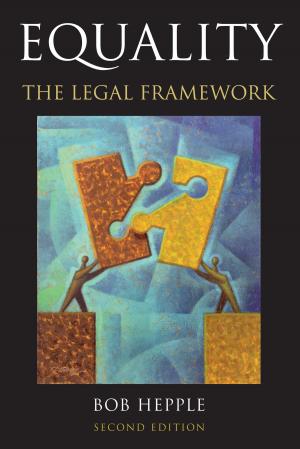The New Middle East
The World After the Arab Spring
Nonfiction, History, Middle East, Social & Cultural Studies, Political Science, International, International Relations| Author: | Paul Danahar | ISBN: | 9781620402542 |
| Publisher: | Bloomsbury Publishing | Publication: | October 1, 2013 |
| Imprint: | Bloomsbury Press | Language: | English |
| Author: | Paul Danahar |
| ISBN: | 9781620402542 |
| Publisher: | Bloomsbury Publishing |
| Publication: | October 1, 2013 |
| Imprint: | Bloomsbury Press |
| Language: | English |
BBC bureau chief Paul Danahar sets out the new order in the Middle East following the Arab Spring, and explains what it will mean both for the region and the West.
For the past forty years the story of the Middle East has been simple. The news images flashing across our TV screens from the Middle East provoked anger, outrage and, sometimes military action from the international community. But now the handful of dictators who ruled over hundreds of millions of people with an iron fist are locked up, exiled, fighting for their lives or buried in unmarked graves, leaving behind countries in turmoil. Saddam Hussein, Assad, Ben Ali, Muammar Gaddafi and Hosni Mubarak all lived lives of cartoonish excess, stalked their own people, snatched them from their beds and murdered them before their children. The West propped these men up because, so the story went, the alternative was states falling under the influence of the communist block or later into the arms of radical Islam.
That narrative of the old Middle East lasted as long as the old Arab dictators did. But now these men are gone. In 2011 the people of the western world realised for the first time that the people of the Arab world weren't all brooding fanatics who needed to be kept in check by a reign of terror. If now is the first time that they can speak openly then it is also our first chance to listen. We can ask what kind of societies they are going to build and learn how their decisions will change our lives. The countries engulfed by the Arab Spring -Tunisia, Egypt, Libya and Syria - are on a journey from dictatorship to democracy and together they will shape a New Middle East. Danahar also reveals the quiet but equally profound revolution going in Israel where tensions between religious and secular Jews are threatening the fabric of society. He investigates how that and the changing regional dynamics while shape the Israeli-Palestinian conflict.
BBC bureau chief Paul Danahar sets out the new order in the Middle East following the Arab Spring, and explains what it will mean both for the region and the West.
For the past forty years the story of the Middle East has been simple. The news images flashing across our TV screens from the Middle East provoked anger, outrage and, sometimes military action from the international community. But now the handful of dictators who ruled over hundreds of millions of people with an iron fist are locked up, exiled, fighting for their lives or buried in unmarked graves, leaving behind countries in turmoil. Saddam Hussein, Assad, Ben Ali, Muammar Gaddafi and Hosni Mubarak all lived lives of cartoonish excess, stalked their own people, snatched them from their beds and murdered them before their children. The West propped these men up because, so the story went, the alternative was states falling under the influence of the communist block or later into the arms of radical Islam.
That narrative of the old Middle East lasted as long as the old Arab dictators did. But now these men are gone. In 2011 the people of the western world realised for the first time that the people of the Arab world weren't all brooding fanatics who needed to be kept in check by a reign of terror. If now is the first time that they can speak openly then it is also our first chance to listen. We can ask what kind of societies they are going to build and learn how their decisions will change our lives. The countries engulfed by the Arab Spring -Tunisia, Egypt, Libya and Syria - are on a journey from dictatorship to democracy and together they will shape a New Middle East. Danahar also reveals the quiet but equally profound revolution going in Israel where tensions between religious and secular Jews are threatening the fabric of society. He investigates how that and the changing regional dynamics while shape the Israeli-Palestinian conflict.















